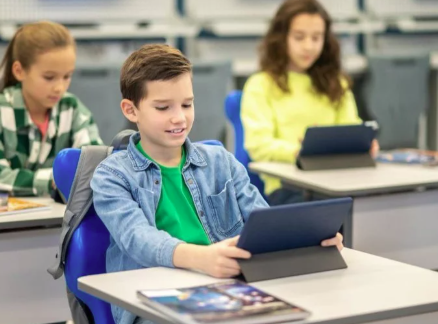As classrooms continue to evolve in the 21st century, one concept stands out as a powerful force for positive change—personalized learning. More than just an educational trend, personalized learning represents a shift toward meeting each student’s unique needs, abilities, and interests. But what does this approach really mean, and how is it shaping the future of education?
What Is Personalized Learning?
Personalized learning is an instructional approach that tailors learning experiences to individual students. Instead of one-size-fits-all lessons, students follow customized learning paths that match their pace, preferences, and academic goals. This method emphasizes student agency, adaptability, and responsiveness to different learning styles.
Why Personalized Learning Matters
In traditional classrooms, some students may feel left behind while others may not feel challenged. Personalized learning addresses this by offering flexibility in how content is delivered, how mastery is demonstrated, and how progress is measured. This approach helps close learning gaps, supports advanced learners, and boosts overall engagement.
Key Features of Personalized Learning
- Student-Centered Approach: Students are active participants in their education, making choices about what and how they learn.
- Data-Driven Insights: Teachers use real-time data and assessments to guide instruction and adjust strategies.
- Flexible Pacing: Students progress through material at a pace that works for them, ensuring deeper understanding.
- Custom Learning Paths: Instruction is aligned with each student’s strengths, needs, and interests.
- Technology Integration: Digital tools enhance access, support differentiated learning, and streamline communication.
How Technology Supports Personalized Learning
Educational technology is a cornerstone of this transformation. Learning management systems, adaptive learning software, and AI-driven analytics allow for real-time feedback and dynamic content delivery. These tools help educators tailor lessons and provide students with interactive, engaging, and self-paced experiences.
The Role of Educators
While technology plays a key role, educators remain at the heart of personalized learning. Teachers guide students through their learning journeys, offer support and encouragement, and make informed decisions based on data and observation. Building relationships and understanding student needs are still essential elements of success.
Benefits of Personalized Learning
- Increased Motivation: Students are more invested when they see relevance and choice in their education.
- Improved Achievement: Meeting students at their level helps accelerate learning and comprehension.
- Stronger Teacher-Student Relationships: Personalization fosters deeper communication and trust.
- Equity in Education: Personalized learning helps provide all students with the support they need to succeed.
Looking Ahead
The future of education will likely be defined by greater personalization, more collaboration, and smarter use of data and technology. Schools that embrace these changes will be better equipped to meet the diverse needs of their learners and prepare them for success in an ever-changing world.
Conclusion
Personalized learning is reshaping education by putting students at the center. With thoughtful planning, effective tools, and strong support systems, schools can create environments where every learner thrives. As the future unfolds, personalized learning offers a clear path toward a more inclusive and effective educational experience for all.














